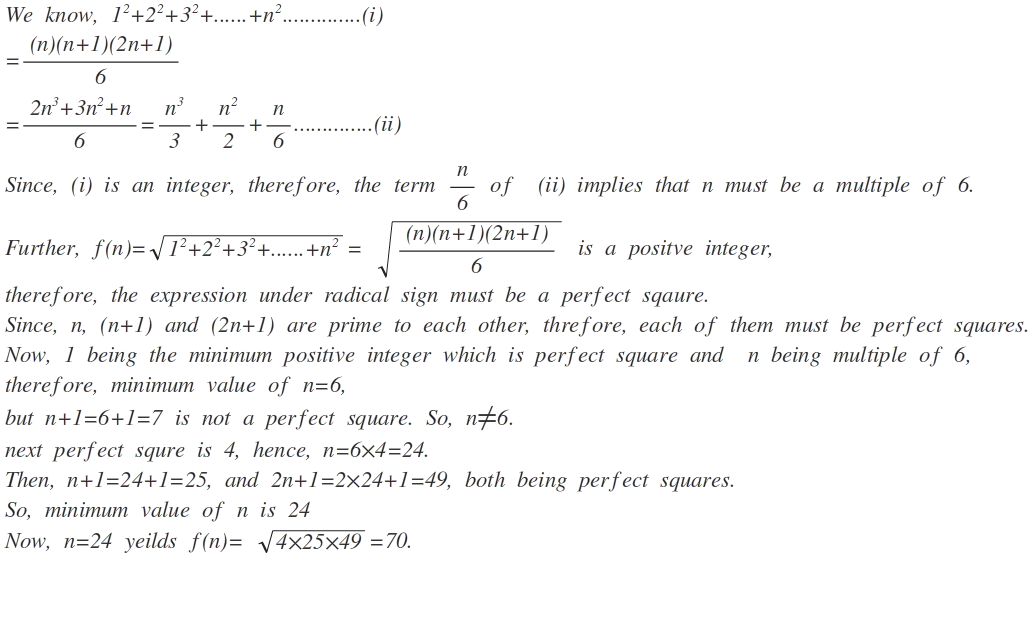700 Followers prob!
Let f ( x ) = 1 2 + 2 2 + 3 2 + ⋯ + ( x − 1 ) 2 + x 2 .
Find the minimum value of n ≥ 2 such that f ( n ) is a positive integer.
n is a positive integer.
Clarification : f ( x ) denote the square root of the sum of the squares of first x positive integers.
The answer is 24.
This section requires Javascript.
You are seeing this because something didn't load right. We suggest you, (a) try
refreshing the page, (b) enabling javascript if it is disabled on your browser and,
finally, (c)
loading the
non-javascript version of this page
. We're sorry about the hassle.
2 solutions
We are given that

The sum of the squares of natural numbers up to n is 6 n ( n + 1 ) ( 2 n + 1 ) This fact can be proved easily with induction.
Any square number is equivalent to 0 or 1 (mod 4). And we require our sum to be a square number.
Therefore, taking the first case, 6 n ( n + 1 ) ( 2 n + 1 ) ≡ 0 ( m o d 4 ) The only way this is possible is if n ≡ 0 ( m o d 4 ) or alternatively, 3 mod 4. We also notice that the denominator of the fraction is 6, and therefore the number we are looking for ( n ( n + 1 ) ( 2 n + 1 ) ) should be a multiple of 6.
By replacing n with numbers that are equivalent to 0 mod 4, we find that n= 24.
Moderator note:
The second part of your solution seems redundant. Note that n ( n + 1 ) ( 2 n + 1 ) is always going to be a multiple of 6. It does not imply that n must be a multiple of 6.
It seems to me that what you've done is gotten lucky that the smallest answer is of the form 0 ( m o d 4 ) , and then you tried sufficient cases to get to the answer.
How can one classify all such solutions? (If at all possible).
